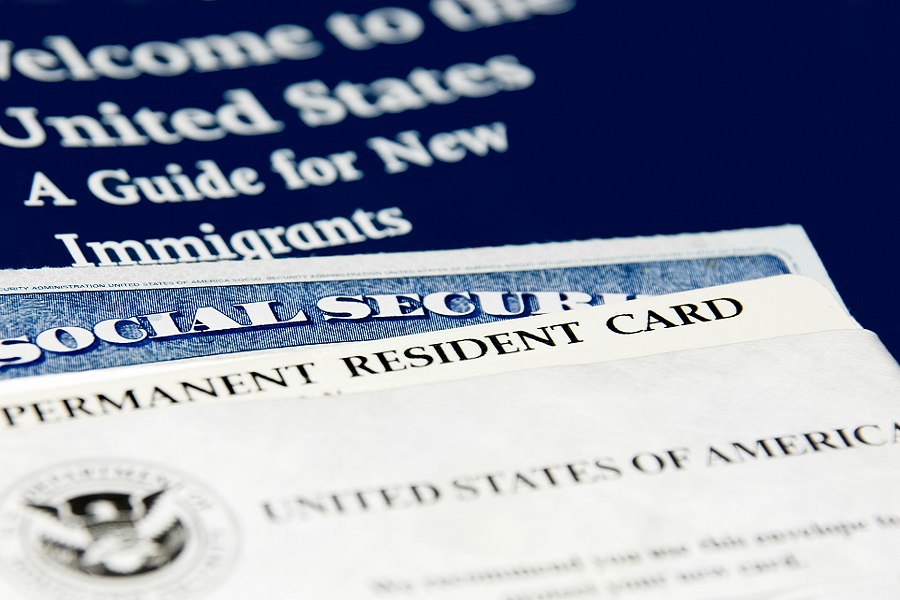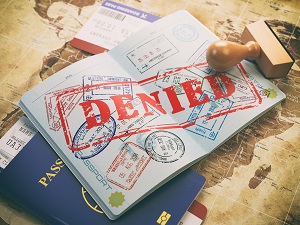Requests For Evidence (RFE) & Immigration Appeals
Applying for immigration benefits like citizenship or permanent residence can get very stressful. However, the most nerve-wracking part of the process is the waiting. You cross your fingers and hope your petition gets approved, and that pit in your stomach keeps you on edge with anxiety. For most applicants, requests for immigration benefits are life-changing, and denial could mean removal from the United States.
There are times when the much-anticipated decision, however, does not come. Instead, you may receive a Request for Evidence (RFE) from the U.S. Citizenship and Immigration Services (USCIS). Learn the importance of RFE in your journey toward a lawful stay in the United States and how an immigration lawyer can assist.

What Is An RFE?
An RFE is a request for more information to help USCIS decide whether to accept or reject your application. A Request For Evidence does not mean denial. It indicates that USCIS is unsure whether you meet the standards for the immigration benefit you are looking for. Your answer is your final opportunity to persuade the agency that you qualify under the terms of the specific application.
If the USCIS denies your petition, you can still appeal with the Administrative Appeals Office (AAO) or with the Board of Immigration Appeals (BIA), depending on the type that you’ve filed for. You may hire a skilled immigration lawyer to represent you in your case.
Why Would USCIS Send A Request For Evidence?
 The USCIS examines each case carefully. Any lapses on your part, such as neglecting documentation and omitting information, can raise some concerns. The U.S. Services For Citizenship and Immigration Services may find that you lack the evidence needed and request additional ones.
The USCIS examines each case carefully. Any lapses on your part, such as neglecting documentation and omitting information, can raise some concerns. The U.S. Services For Citizenship and Immigration Services may find that you lack the evidence needed and request additional ones.
There are several reasons that the agency may have for requesting additional information or evidence. The following are only some of the more common ones.
Missing Documentary Evidence
Previously submitted documents may be lacking or insufficient to establish eligibility. If this is the case, the USCIS may request copies of passports, divorce judgments, long-form birth certificates, tax returns, and other records. The request for additional evidence gives you a chance to organize your paperwork and submit any missing documents instead of being denied immediately.
No Proof Of Lawful Entry
You must demonstrate your legal entry into the nation if you ask for permanent residency. An RFE will be issued if you don’t provide sufficient documentation. They would request copies of your U.S.-stamped passport as verification, a Customs and Border Protection (CBP) form, or an I-94 form with your travel history.
Lack Of Proof Of Financial Capacity
USCIS will also request additional evidence if the applicant is unable to prove that their spouse can support them. If a U.S. citizen or a Green Card holder cannot vouch for their spouse’s support, USCIS can request for a co-sponsor who can. One example would be a family member who earned at least 125% of the federal poverty level.
No Document Translations
A third party must provide a certified translation of any papers written in a different language. A certified translation bears the translator’s signature, seal, and verification that it is accurate. The translator should also be competent enough to translate from the applicant’s native language into English.
Criminal Records
 The USCIS will send you an RFE if you indicate that you’ve been arrested or convicted. As part of this, the agency will request copies of criminal records if you fail to disclose them in your application. You should submit any documents of any unlawful or questionable activity.
The USCIS will send you an RFE if you indicate that you’ve been arrested or convicted. As part of this, the agency will request copies of criminal records if you fail to disclose them in your application. You should submit any documents of any unlawful or questionable activity.
Other types of evidence may be requested, depending on the deficiencies in your application. It is essential to comply with the USCIS to convince them you qualify for the immigration benefit you’re applying for.
What Happens If Your Petition For Immigration Is Denied?
Hope is not lost if your immigration application has been rejected. You still have several options available to you. The Administrative Appeals Office (AAO) and the Board of Immigration Appeals (BIA) both accept appeals against denials.
The Administrative Appeals Office (AAO)
 Applicants can file a request to the Administrative Appeals Office after being rejected (AAO). They address requests for roughly 50 different immigration application categories and take appeals of unfavorable rulings on petitions for benefits.
Applicants can file a request to the Administrative Appeals Office after being rejected (AAO). They address requests for roughly 50 different immigration application categories and take appeals of unfavorable rulings on petitions for benefits.
Some examples are listed below.
- Employment-based immigrant and nonimmigrant visa petitions (Forms I-129 and I-140).
- Investor immigrant petitions (Form I-526).
- Temporary Protected Status applications (Form I-821).
- Fiancé(e) visa petitions (Form I-129F).
- Waiver of ground of inadmissibility applications (Form I-601).
- Applications for permission to reapply after removal (Form I-212).
- Some special immigrant petitions (Form I-160, except appeals by widowers, which are within the scope of the BIA).
- Orphan applications (Forms I-600 and I-600A).
- T and U visa petitions. The T visa applications are for nonimmigrant visas for victims of human trafficking. U visa petitions are for nonimmigrant visas for victims of certain crimes.
- Applications to preserve residence for naturalization purposes (N-470).
- ICE ruling on breach of surety bond.
- Appeals of USCIS revocation of formerly approved petitions.
Applicants must file using Form I-290B – Notice of Appeal or Motion within 30 days after personal service of the decision. They may also do this within 33 days for service by mail.
As mentioned, not all denied immigrant benefit requests may be forwarded to the Administrative Appeals Office. Other times, it may be under the jurisdiction of the Board of Immigration Appeals (BIA).
The Board Of Immigration Appeals (BIA)
The Board of Immigration Appeal (BIA) is an agency that reviews final decisions by immigration judges and interprets immigration laws. Within 30 days of the immigration judge’s final ruling, you must submit a Notice of Appeal to the BIA. If you fail to do it on time, the appeal will be dismissed, and the immigration judge’s ruling will stand. Thus, it is crucial to contact an immigration attorney as soon as possible to ensure a timely and complete appeals process.
Under certain circumstances, you may ask the immigration judge or the BIA to review the case again. A Motion to Reopen is filed with the court that last handled the case. It may be granted if you can show one of the following:
- New facts or evidence.
- Changed country conditions.
- Lack of notice.
- Exceptional circumstances.
- Ineffective assistance of legal counsel.
- A Motion to Reconsider asks the court to reconsider the case in light of new case law or changes in the law.
What To Do If The BIA Issues A Denial
Some immigration cases may appeal a denial to the Federal Appeals Court. One example is a final order of removal. Remember that the appeal must be submitted 30 days following the BIA’s ruling, and while it is underway, a stay of removal must be requested because there is no automatic removal.
Federal Appeals Court
If an appeal to the BIA results in denial, you can still bring your immigration case to a Federal Appeals Court. This process requires filing a Petition for Review. Asylum applicants and criminals who believe their conviction isn’t grounds for removal can also go to the Federal Appeals Court.
The Supreme Court
In exceptional cases, you can take your case to the Supreme Court of the United States. It is the highest judicial authority in the country.
While it is possible for a deportation case to ultimately reach the Supreme Court, it is relatively rare. The Supreme Court typically chooses cases that involve significant constitutional or legal issues of national importance. It has discretionary authority to accept or decline to hear a case, and those under exceptional circumstances will make it to this level. In short, building up a strong case with the BIA and the Federal Appeals Court can yield more favorable results.
Seek Help From An Immigration Lawyer
 An application for immigration benefits can be a stressful and time-consuming process. It can also be challenging to navigate alone. If your application has been denied, secure the assistance of an experienced immigration lawyer.
An application for immigration benefits can be a stressful and time-consuming process. It can also be challenging to navigate alone. If your application has been denied, secure the assistance of an experienced immigration lawyer.
Better yet, give your application a better chance at success by hiring an immigration attorney the moment you decide to move to the United States. This will save you months of stress and difficulties and help you have a more likely chance at getting the benefits you seek. An experienced immigration attorney at Lincoln Goldfinch Law is always available. They can work with you for a more positive outcome.
Summary
Applying for an immigration benefit is a daunting and complicated process. Sometimes you will receive a “Request for Evidence” (RFE). In this case, you need to submit the documents you lack or any information you failed to submit or include in your petition.
Other times, your request for immigration benefits can be denied. But you should not lose hope, since you can appeal this decision. To help you with the process, it’s best to consult with a seasoned appeals lawyer.



